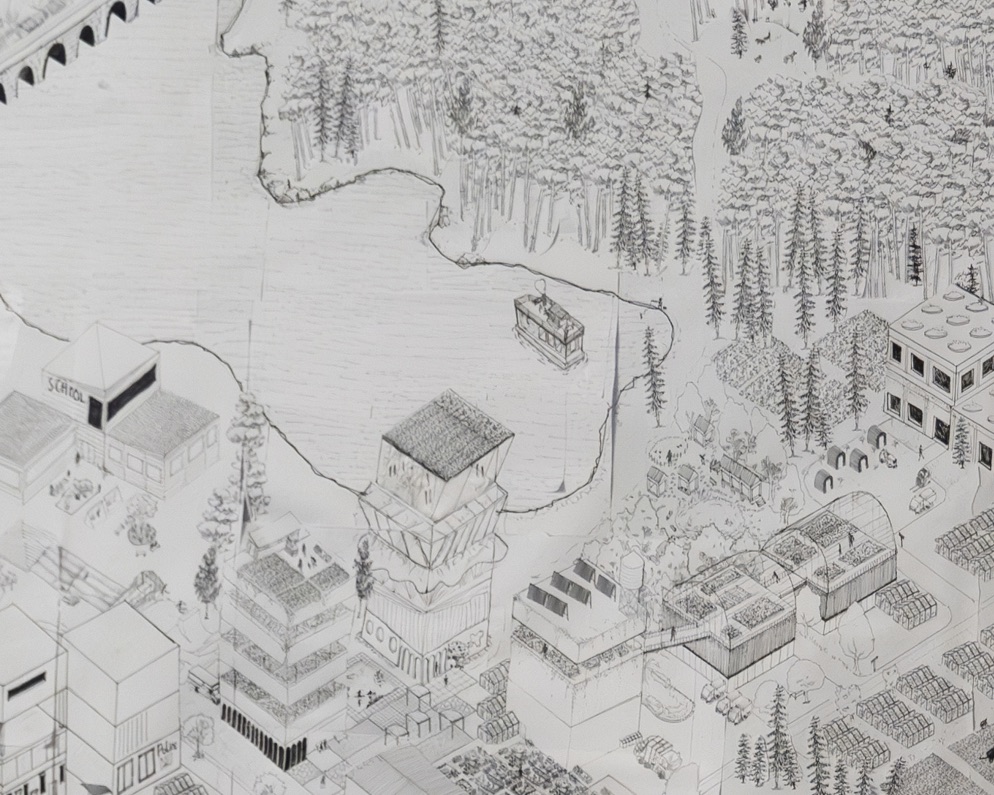This past weekend, Paimio Sanatorium transformed into a hub of urban innovation as 13 Aalto University students participated in the Incomplete City project, a globally renowned architectural workshop. From October 5-8, students from the university’s urban planning program collaborated to design a fictional city through a series of collaborative drawing exercises.
Originally devised by Marco Ferrari, Joseph Grima, and Dan Hill at the UCL Bartlett School of Architecture, the Incomplete City project challenges participants to explore urban design by creating a “Library of Urban Elements” and integrating them into a collaborative cityscape. These elements include everything from benches and trees to complex infrastructure, allowing participants to rethink relationships between urban space, diversity, and infrastructure.
“We usually conduct Incomplete City studios in highly urban locations, so to do this one at Paimio Sanatorium was particularly intriguing,” said Dan Hill, Director at the Melbourne School of Design, who led the workshop. “Our students were working on new visions for Helsinki neighborhoods, so we expected the final design to reflect both Helsinki and Paimio, perhaps integrating elements of the forest into the city.”
The workshop was part of a larger course in collaboration with the City of Helsinki, in which students reimagined eight locations within the city center. Professor Antti Ahlava from Aalto University praised the opportunity, saying, “We are honoured to work with Paimio Sanatorium Foundation and the energetic curators it has selected, in order to dig deeper into the creative evolution of cities.”
The students’ designs culminated in an exhibition as part of the Spirit of Paimio conference on October 9-10, solidifying the Sanatorium’s growing role as a platform for learning and innovation in architecture and urban planning.
“This is an important step in the development of Paimio Sanatorium’s new identity as a platform for learning and creation,” said Joseph Grima, Curator at the foundation. “By facilitating the kind of hands-on approach the workshop offers, the foundation enhances its educational offerings and also positions itself as a dynamic hub for academic and professional exchange in architecture and urban planning.”

